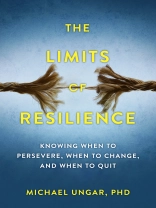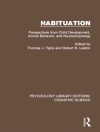Are we sometimes too strong for our own good?
Amid epidemics of anxiety and depression, threats of ecological and economic disaster, not to mention a pandemic, resilience has been the buzzword of the decade, the answer to every challenge we face as individuals, organizations, and communities. We seldom stop to ask if our insistence on persevering is really in our long-term interest. Does it trap us in patterns of behavior that no longer make sense, foreclose too soon on better opportunities, and stifle positive development? With examples ranging from overly optimistic thinking habits to risk-averse descisions by corporations and governments, Michael Ungar, one of the world’s leading resilience experts, explores how even the most resilient among us can fail catastrophically. The Limits of Resilience is a witty, compassionate argument that true resilience lies not so much in always bouncing back but in our ability to self-disrupt and embrace occasional but much-needed failure.
About the author
Michael Ungar, Ph.D. is the founder and Director of the Resilience Research Centre at Dalhousie University where he holds the Canada Research Chair in Child, Family and Community Resilience. In 2022, Dr. Ungar was ranked the number one Social Work scholar in the world in recognition of his ground-breaking work as a family therapist and resilience researcher. He has worked with the World Bank, UNESCO, and the Red Cross, and is a recipient of the Canadian Association of Social Workers National Distinguished Service Award. Dr. Ungar lives in Halifax.












